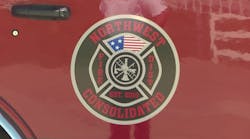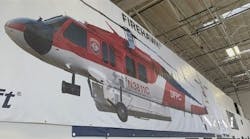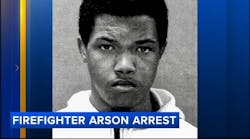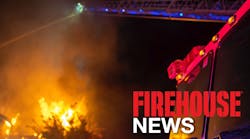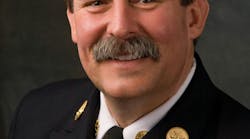For far too many people in the fire service, the educational process stops when they complete Firefighter I training. In many instances, they move into fire stations in their communities and begin doing the same things over and over again. They make no effort to gather knowledge in a systematic fashion. Maybe they read and learn just enough to be promoted to a higher rank. This is the fire service within which I have spent the majority of my time in career, volunteer and military units.
On the other hand, a great part of my career has been spent in pursuit of knowledge. Why? The reasons are both personal and professional. My parents raised me to value the pursuit of knowledge. Early failures in my college career focused me to keep pushing on toward my degrees. I also discovered early that there was a lot more to learn than the prescribed courses in firefighting and apparatus operations.
An inquisitive mind is the key to learning. I have long believed that we do not go to school in pursuit of grades. We go to acquire new knowledge. Far too many among us in the fire service see the world of higher education as a place with a beginning, a middle and an end. These folks see the receipt of the degree as the be all and end all of their educational career. That is sad indeed.
As new knowledge is acquired, new questions should begin to flood the mind of the learner. Each new fact should create many more questions. Perhaps the one thing which has impressed me the most about my journey through the world of education is that just when you think you know it all, you discover how little you really know. Another door opens and a new journey begins.
Many times during my career with the Newark, NJ, Fire Department, I was called on to handle unique and challenging assignments. I am not sure whether my educational background equipped me to answer the questions I continually faced. What I am sure of is that my education experiences equipped me with the skills to ask good questions and do proper research. Trust me when I tell you that those were skills not available within the standard fire department drill-ground manuals.
I see the need to create a new level of educational opportunities within the fire service. Much of what we do in every aspect of our field of endeavor is based on anecdotal experiences. We do things which have been done in a particular way because that's the way it has always been done. The world needs to change and it is the function of higher education, particularly at the doctoral level, to advance the body of knowledge by using research studies. We need to create more solid knowledge on which to build the future structure we call the American fire service.
Firehouse Magazine has asked me to poll some of my friends in the fire service world about their educational experiences. To create a level playing field, I asked each of them to respond to a common set of questions. The questions may seem simple, but they serve as the starting point for each person to describe personal experiences in the world of higher education. I hope that you enjoy the way in which my friends have shared their thoughts with you. Let me begin with the questions:
- Why did you pursue degrees to support your career in the fire service?
- Did the additional knowledge and skills learned in college or university make a difference in your career?
- What do you see in the future?
KEN FOLISI is a retired battalion chief with the Lisle-Woodridge Fire District in Lisle, IL. He currently serves as a faculty member in the bachelor's degree program in fire service administration at Lewis University in Romeoville, IL.
Entering the fire service in 1979, I was fortunate to be associated with a very progressive department and a training officer who instilled in me the understanding that to be a professional in the fire service takes constant learning to be the best you can be, not just for individual gain, but also for those you serve with and for because others depend on your abilities. Training, education and experience must all come together in a professional way in the fire service.
Higher education can have great impact in professional life. Education will not make you a professional. If, however, you choose to use what you have learned to make yourself a better professional, then the benefits of higher education will become evident. In my case, I was fortunate to have a wonderful fire service career for more than 25 years. During my career, I used what I learned in attaining associate's, bachelor's and master's degrees. The education helped me do well in assessment-type promotional exams for lieutenant, captain and battalion chief. My higher education helped me form my leadership style and gave me the needed skills to manage my job responsibilities far beyond what I would have been capable of without the higher education. My higher education, along with training and experience, gave me the tools I needed to help build a rewarding fire service career.
The future of the fire service will be driven by even higher demands for service and higher professional standards. I am sure the fire service profession will continue to grow in professional stature through higher education because that education is what provides more and more of the tools necessary to fulfill the fire service mission.
MIKE WIEDER is assistant director of Fire Protection Publications in Stillwater, OK.
I started my fire service career as a 16-year-old junior firefighter. As I neared graduation from high school, there was an expectation from my family that I would go to college. I looked for ways to combine that expectation with my interest in the fire service. I got little help from high school guidance counselors, as they were clueless about the fire service (other than that it was all volunteer in that region) or fire-related degree options. Fortunately, the chief of the Pennsburg, PA, Fire Company, to which I belonged, was a wonderful man named Jack Mensch. He was active in county-level fire service activities and he took me and my parents to meet the director of the Montgomery County Fire Academy at that time, Jack McElfish. Jack did a wonderful job of selling me on that path and highlighting some of the available programs.
I then started my educational pursuit by getting an AAS (associate in applied science) in fire technology at Northampton Community College in Bethlehem, PA. I knew that an AAS degree alone would probably not get me too far toward a career. While at NCC, the instructor of our Suppression Systems class was a gentleman by the name of John Uliana, who at the time served as head of fire and safety for the Bethlehem Steel Corporation. John was a 1951 graduate of the School of Fire Protection at Oklahoma State University. He steered me toward that direction and the rest is history.
In my case, my education made all the difference. While a student at OSU, I was hired to be a research technician at IFSTA/FPP. As I neared graduation they made me an offer to stay as an editor and I have now been there over 22 years. This has allowed me career opportunities that I could have never imagined when I was mowing ball fields at the local school district and waiting for my fire pager to go off in Pennsburg. I have taught thousands of firefighters, written 30 books, been named the national fire instructor of the year, served as an officer in national fire service organizations, served as chair of an NFPA committee, and countless other privileges. None of this would have been possible without the education I received and the contacts I made as a result of that education.
In the future, I see that virtually any career in the fire service or fire industry will require at least a bachelor's degree of some type. As competition for career firefighter jobs increases, a college degree and EMT or EMT-P certification will be required to get hired by a career fire department. The degree does not necessarily have to be a fire-oriented degree. People seeking promotion to higher ranks in the fire service will benefit from management, public administration and business administration degrees.
I also hope that the work of the folks at the U.S. Fire Administration (USFA) on the Fire and Emergency Services Higher Education (FESHE) Initiative will promote expanded and improved opportunities for fire and safety-oriented degree programs in the U.S. We cannot consider ourselves a true profession until all of the required components are in place. This includes outstanding degree programs through the doctorate level, academic journals, outstanding texts, qualified professors and the other hallmarks of a true profession.
DR. DENIS ONIEAL is superintendent of the National Fire Academy in Emmitsburg, MD.
I was fortunate to be in a very busy station where there were a number of young veterans. They were all going to school on the G.I. Bill. I was working a part-time job driving tractor-trailers in New York City. It didn't require too much math to figure out that I was taking home the same amount of money going to school (tax free) as driving a truck (taxable), so I signed up. When school started, it was terrific. We had great professors and classmates, some of whom are lifelong friends. It is amazing to me where many of them wound up in their careers. Just about every one of them became tops in their field.
Did my education make a difference? Of course it did! Not so much that you had all the answers, but rather the firm understanding that you don't have all the answers, but know where and how to look them up. There is also a lot to be said about your peer group, your classmates, who then become lifelong friends, and many times resources. I'm the luckiest fellow you ever met - school made the difference for me.
I see that two things are going to occur in the future. The first is that the fire service will begin to enter "professional" status as opposed to the "occupational" status. That means that there will be more and more requirements for both education and training for positions in the fire departments. We're seeing a little of it now, degree requirements for officers; EFO or CFOD requirements to become department chiefs, certification for different responsibilities. Once professional status is conferred (a long story - see my series of articles titled "Professional Status: The Future of Fire Service Training and Education" in Firehouse, August to December 2003), the next phase will be specialization - different career paths within the fire service, i.e., prevention, training, operations, logistics. This is the very same path that medicine, law, nursing, teaching, engineering and others have taken. We won't see it in the next few years, but certainly within the next 10 or 15 years. Those entering the fire service have the opportunity to make sure they are in the right place at the right time with the right skills if they begin preparing now.
FIRE CHIEF RICHARD GASAWAY of Roseville, MN, is a doctoral candidate at Capella University in Minneapolis.
I realized early on that to be an effective leader, in any profession, requires a foundation of education coupled with experience. There are some things we can learn in the streets and other things that need to be more formally taught. I pursued my bachelor's degree to acquire the foundational knowledge for how to run the business of the fire department. My master's degree allowed me to apply many advanced business school principles in a real-world setting. While the former have allowed me to acquire and apply business knowledge, my doctoral program has allowed me to create business knowledge, contributing in ways that advance understanding of understudied issues.
Did my education make a difference in my career? Absolutely. My education (again, coupled with experience) has opened doors of opportunity for me that would have never been possible otherwise. For example, armed with a master's degree and 10 years of experience in the fire service, I was able to secure my first full-time fire service position, a fire chief. I was 28 years old and I know my education played a key role in opening up that opportunity.
I think the future can be predicted by seeing how the past has played out. When I entered the fire service in 1979, there were very few fire service ads seeking educated leaders. Over time, that has evolved. First there were associate degree (or equivalent) requirements. Then we started to see bachelor degrees required (or strongly preferred). Then more cities set Executive Fire Officer (from the National Fire Academy) as a requirement (or preferred). Now, it's not uncommon to see bachelor degrees as the minimum requirement and master's degrees preferred. If we are going to advance to the revered profession that we so yearn to be, then we need to have professional, well-educated leaders in the top positions. Our public safety partners on the police side have known this for years.
As far as fire service leaders becoming doctors, I think those who do that are answering a higher calling to contribute beyond their own career aspirations. Doctoral-degreed fire service leaders can contribute significantly to the betterment of the fire service by teaching, writing, consulting and researching. I do not see the day when municipalities will desire, nor recognize the benefit of, doctoral-degreed leaders.
DR. BURTON CLARK is program chair at the National Fire Academy.
I moved to the world of higher education because there was more to learn than the fire department officers or training academy instructors could teach me. Education has played a great part in my career. By understanding the theory behind what I was doing, I was better able to adjust my practice to meet new and unusual situations. In addition, the quality of my work increased because I had a deeper understanding of how fire service doctrine was made and applied.
In the future, I envision a fire service studies doctoral degree infrastructure being created so the discipline can take the next step to becoming a true profession. We need to create a deeper and wider pool of research upon which to build out future fire service.
Please note that I am still learning. I am about to begin serving on my seventh doctoral dissertation committee. The higher education journey never ends and it is a wonderful ride.
DR. HARRY R. CARTER, Ph.D., CFO, MIFireE, is a Firehouse contributing editor. A municipal fire protection consultant based in Adelphia, NJ, he is the former president of the International Society of Fire Service Instructors. Dr. Carter is a past chief and active life member of the Adelphia Fire Company. Currently chairman of the Board of Fire Commissioners for Howell Township District 2, he retired from the Newark, NJ, Fire Department in 1999 as a battalion commander. He also served as chief of training and commander of the Hazardous Materials Response Team. Dr. Carter is vice president of the American Branch of the Institution of Fire Engineers (MIFireE). He recently published Living My Dream: Dr. Harry Carter's 2006 FIRE Act Road Trip, which was also the subject of a Firehouse.com blog. He may be contacted at [email protected].
